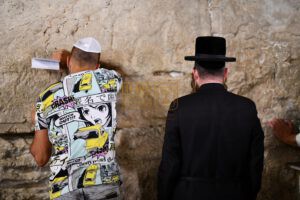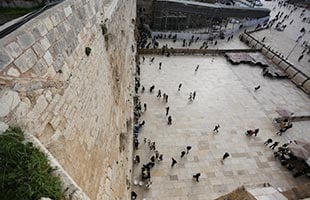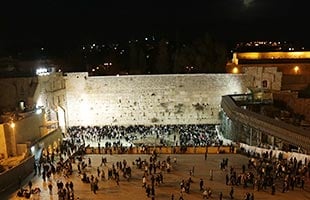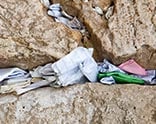- Western Wall
- Categories
- Parasha of the Week
- Bereishit
- Parashat Vayechi
Parashat Vayechi

Parashat Vayechi – 5783 Rabbi Shmuel Rabinowitz, Rabbi of the Western Wall and Holy Sites…

Parashat Vayechi -5782 Rabbi Shmuel Rabinowitz Rabbi of the Western Wall and Holy Sites …

Parashat Vayechi – 1781
In this week’ Torah portion of Vayechi which concludes the book of Genesis, we listen to Jacob blessing his sons as
In this week’ Torah portion of Vayechi which concludes the book of Genesis, we listen to Jacob blessing his sons as
All articles loaded
No more articles to load
Today December 10, 2024
Dawn:
End of prayer time:
Mid day:
Sunset:
Western Wall Cameras

Watch the Western Wall in real-time
Interesting Facts
The Western Wall's visible stones tell of its history from the time of the Holy Temples' ruin. The original Herodian stones are distinct from the others in size and in their unique borders.
The building style of "grading" used when layering the Western Wall's stones, teaches us that the Temple Mount's walls were not perpendicular but marginally sloping.






